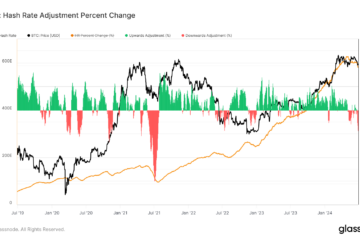

VanEck’s head of digital assets research, Matthew Sigel, criticized a recent US Treasury Department’s views on digital assets in a recent report, claiming it had an anti-stablecoin stance based on outdated academic views.
Sigel stated that the Treasury relied on a single academic study by Gary Gorton and Jeffery Zhang to justify a preference for centralized financial systems. Additionally, he said the study’s US-centric historical analysis promotes a “recycled narrative” that private money is inherently unstable, deeming it misleading.
Sigel added:
“History from other countries shows that private currencies don’t automatically lead to instability — when the right checks and balances are in place, they can be just as reliable as government-issued money.”
The Treasury Department’s document had positive remarks about representing real assets on the blockchain, a process known as tokenization. It added that stablecoins and tokenization could reshape the financial landscape.
However, it warned of potential stability risks related to stablecoins and argued that their growing reliance on Treasuries presents risks if left unregulated.
Outdated arguments
Sigel argued that Gorton and Zhang’s study circulates within an academic “echo chamber,” reinforcing US-specific concerns without acknowledging global precedents. He said stablecoins have shown the potential to function securely under appropriate regulatory frameworks worldwide.
Additionally, Sigel criticized the comparison between 19th-century wildcat banknotes and stablecoins, arguing that the Treasury’s stance fails to consider how private digital currencies can operate in a stable manner in modern financial ecosystems.
He added that modern stablecoins have real-time data and transparent transactions that are far removed from the chaotic environments of the past, and the old problems do not apply to them.
Sigel concluded with a call for broader, global scrutiny. He believes understanding the potential of stablecoins and private digital currencies requires moving beyond US-only perspectives and drawing on international financial experiences.
Additionally, Sigel urged US regulators to adopt a more inclusive view that reflects the realities of an interconnected, digital global economy.
 Bitcoin
Bitcoin  Ethereum
Ethereum  Tether
Tether  XRP
XRP  Solana
Solana  USDC
USDC  TRON
TRON  Lido Staked Ether
Lido Staked Ether  Dogecoin
Dogecoin  Figure Heloc
Figure Heloc  Cardano
Cardano  Bitcoin Cash
Bitcoin Cash  Wrapped stETH
Wrapped stETH  WhiteBIT Coin
WhiteBIT Coin  Wrapped Bitcoin
Wrapped Bitcoin  Wrapped eETH
Wrapped eETH  USDS
USDS  Chainlink
Chainlink  Binance Bridged USDT (BNB Smart Chain)
Binance Bridged USDT (BNB Smart Chain)  Monero
Monero  LEO Token
LEO Token  WETH
WETH  Stellar
Stellar  Coinbase Wrapped BTC
Coinbase Wrapped BTC  Sui
Sui  Ethena USDe
Ethena USDe  Litecoin
Litecoin  Zcash
Zcash  Avalanche
Avalanche  Hyperliquid
Hyperliquid  Shiba Inu
Shiba Inu  Hedera
Hedera  Canton
Canton  USDT0
USDT0  World Liberty Financial
World Liberty Financial  sUSDS
sUSDS  Dai
Dai  Toncoin
Toncoin  Cronos
Cronos  Ethena Staked USDe
Ethena Staked USDe  PayPal USD
PayPal USD  Polkadot
Polkadot  Uniswap
Uniswap  USD1
USD1  Mantle
Mantle  Rain
Rain  MemeCore
MemeCore  Bittensor
Bittensor 


